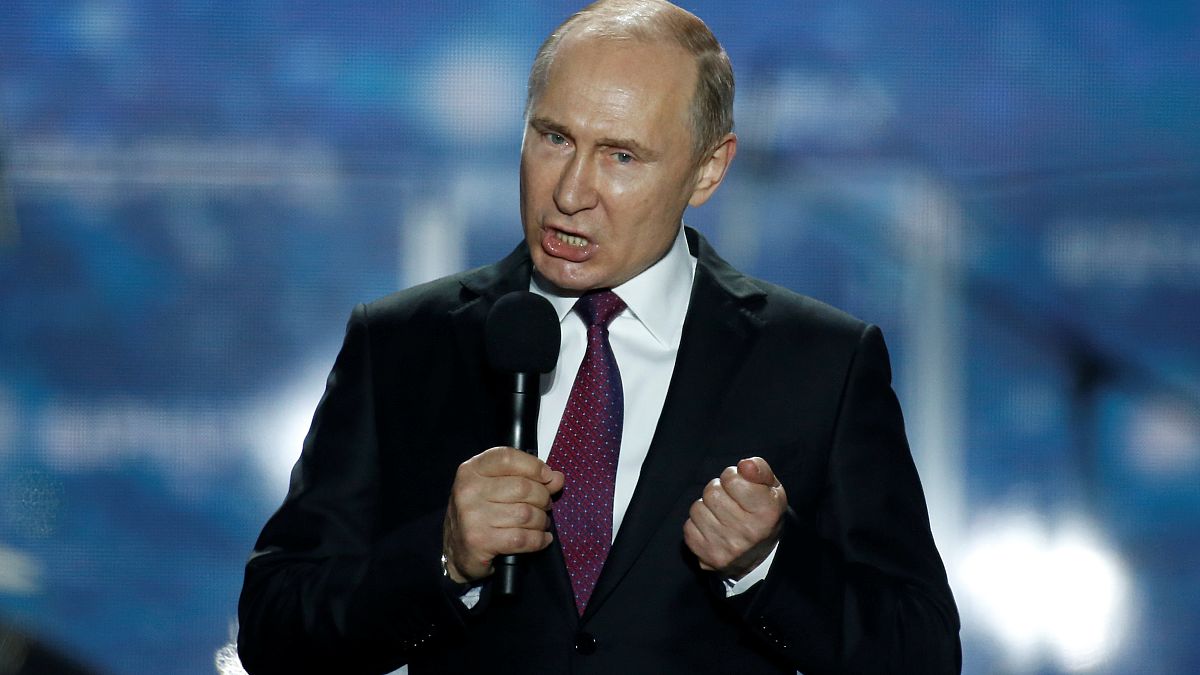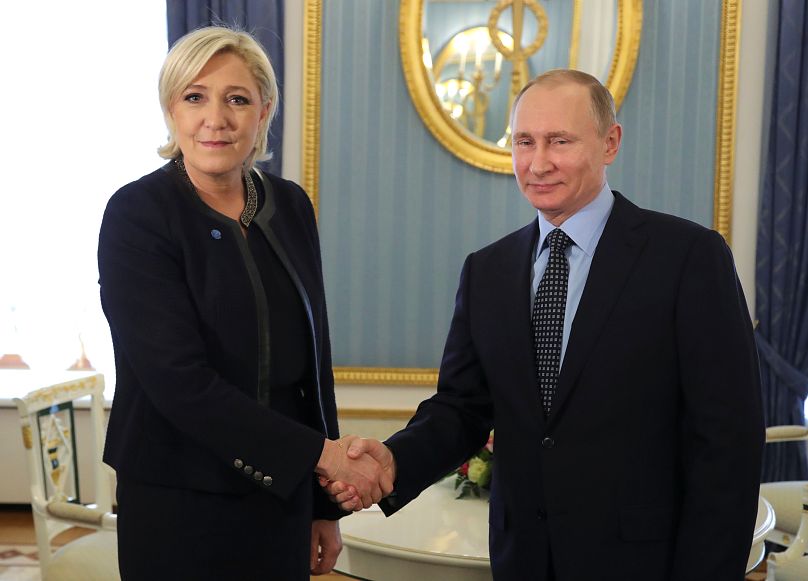Why do the Russian people want to keep Vladimir Putin in power after 18 years? And why is the unshakeable president so hated by many Western countries? Here are some suggested replies.
Vladimir Putin, as good as re-elected as President of Russia even before this Sunday’s election, is as detested in the West as he is loved in his country. These extreme points of view are connected, as the more he is accused of all evil – notably by the United States – the more the Russians tend to stand by him, at least according to opinion polls.
But for what reasons exactly is there such a split between the perception of the master of the Kremlin by a majority of Western countries, and that of his fellow citizens?
Putin has been in power for 18 years but during this electoral campaign he has increased diplomatic tension like never before. To such an extent that several experts in international relations estimate that a new “Cold War” has begun, and that it’s not about to end.
Why is he the “villain” in the West?
Because of the conflict in Ukraine:
- The West has never come to terms with Russia’s intervention in Ukraine. In early 2014, a revolt began on Maidan Square in the capital, Kyiv. Bloodily repressed by the Ukrainian authorities – backed covertly by Moscow – it spread however across the country, encouraged by the Americans and the Europeans. The pro-Russian president Viktor Yanukovych was forced to flee.
- Putin, not to be outdone, sent non-uniformed fighters – although they were part of the Russian army – to support the separatists in the east of the country, to pit themselves against the destabilised Ukrainian troops. The violent clashes left at least 10,000 dead.
- Moscow took advantage of the chaos to annex completely the Ukrainian peninsula of Crimea, right under the nose of the West. The case was wrapped up thanks to a referendum, judged totally illegal by the international community. The inhabitants of Crimea had always felt somewhat Russian; on 18 March 2014, the territory officially became part of the Russian Federation.
Because of the conflict in Syria:
- In early 2011, it was Syria’s turn for the “Arab spring” to bloom. The rebellion, now armed, was led by opposition groups backed by certain Western countries. At the same time, the so-called Islamic State terrorist group was making increasing ground in Syria. It all seriously threatened the authoritarian regime of Bashar al-Assad.
- Putin was keen to remain a solid ally of the Syrian president, and showed it. Each time a resolution was put before the UN Security Council to denounce the war crimes of the authorities in Damascus, Russia used its veto: it would do so no less than 11 times.
- In 2015, Russia weighed right into the conflict, deploying substantial military means on Syrian soil. Once again, the Kremlin boss caught Western leaders off guard. The offensive crushed the ISIL jihadists and rebel groups, freeing a large part of the territory – and saving Bashar al-Assad, literally.
Because of Moscow’s interference:
- In the middle of the electoral campaign in the United States in 2016, the American intelligence services detected massive cyber-attacks led by Russian hackers and trolls. Putin detested Hillary Clinton, the Democratic presidential candidate… and vice-versa! The Russian authorities were openly accused of having favoured the election of Donald Trump, who had declared himself sympathetic to the head of the Kremlin.
- Buoyed by this success, a similar operation was deployed during the presidential election campaign in France in 2017, via social media and Russian television stations. This time, Putin’s preferred candidate was Marine Le Pen, leader of the far-right party the National Front, who he had even welcomed for a one-to-one discussion to the Kremlin. The other candidate, Emmanuel Macron – who had accused Russia of having spread false information to destabilise him – emerged triumphant on May 14. Putin had failed!
Why is he still the “hero” in Russia?
- The big fear for a majority of Russians is to fall back into the total political and economic confusion of the beginning of the 1990s, after the fall of communism. And Putin reassures them, notably in the provinces where daily life is uncertain. People know who they have, they do not want to leap into the dark.
- The Russian president governs with an iron fist but he has given his country back its pride and grandeur. Gone is the humiliation, which was precisely what part of the West had inflicted on it. Once again, Russia pulls its weight on the international stage. Putin’s approval rating among the population has been particularly boosted by the annexation of Crimea. Incidentally on March 18, the day of the presidential vote, will see celebrations for the fourth anniversary of this incredible takeover.
- The army has come back to the fore, illustrating this – as we have previously seen – in several military situations. In early March, Putin made one of the most belligerent speeches he has made during 18 years in power. He showed off new weapons, calling them “invincible”. In the case of a nuclear attack against Moscow, in veiled terms he threatened Washington with an “immediate response”.
These are some reasons, among others, why Putin will be re-elected with flying colours. For years, he has gagged the Russian media or taken 100% control of them, and has made sure in this presidential vote that his main opponent, Alexei Navalny, is out of the race – declared ineligible until 2024 because of a court conviction. By that date, Putin will have completed his fourth mandate, having occupied Russia’s highest position of power for almost a quarter of a century.

